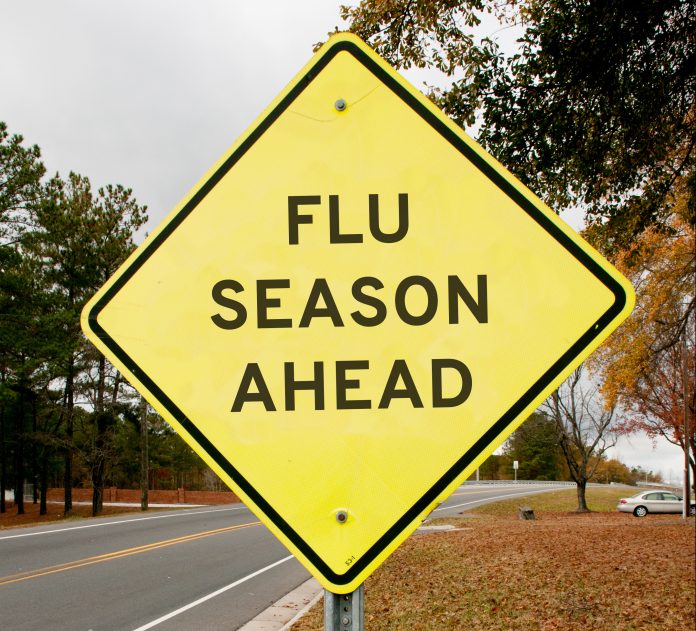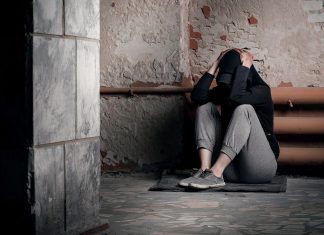Submitted by Dr. Kenneth Dietrich, Chief Medical Officer
We are entering influenza season and have already diagnosed patients with the virus at our facilities this year. Many people will become infected over the next few months as influenza season peaks. We thought that this would be a good time to remind you how to reduce your chances of becoming infected and how to care for yourself or others if you do become ill.
During a typical flu season, the number of patients seeking care can overwhelm clinics, emergency departments and hospitals resulting in delayed care. The season also generates many questions regarding influenza. Therefore, we thought we would take the opportunity to address a few of the most commonly asked questions to help you prepare for this influenza season:

What is influenza?
Influenza is a virus that causes severe systemic illness. It is seasonal and occurs each year. There are many different strains of the virus, which prevents permanent immunity. Therefore, humans can contract the disease every year.
Influenza is not the “flu.” People often use the “flu” to describe upper respiratory tract infections, gastroenteritis, sore throats and other common viral illnesses. These infections are caused by a large variety of viruses, but are not caused by the influenza virus. The influenza virus is a much more aggressive virus that can be life threatening. It often affects multiple organs and systems, causing systemic symptoms.
During the influenza season is it safer to stay home rather than sit in a lobby with a bunch of other sick people for hours?
Hospitals and healthcare clinics are always filled with sick people. Therefore, the best way to protect yourself from contracting influenza is to stay away from these areas if at all possible. If you do need to see a healthcare provider, use masks if available and careful hand washing.
What can healthcare providers really do for people who are exhibiting influenza symptoms?
Direct treatment for influenza is very limited. There is evidence that treatment with an antiviral drug can help reduce the severity and length of symptoms resulting from influenza. Unfortunately, these benefits only occur if the drug is started within the first two days of illness. This becomes problematic because most people who contract influenza often have limited symptoms during that the first 48 hours and thus do not seek medical attention early enough for treatment to be beneficial.
How effective are influenza vaccines?
Influenza vaccination is the best option to prevent contracting influenza and reducing its severity if contracted. Because different strains of the virus emerge each year, the vaccine is not 100% effective. However, the risk of contracting the disease without the vaccine is much, much greater. Most of the people who have contracted influenza this year have not been immunized. Generally, those who were immunized, and contracted influenza have much less severe illnesses.
If someone has not already had a flu shot, is it too late?
No, it is not too late to benefit from the influenza vaccine. It takes approximately two weeks to reach full immunity after receiving the vaccine. Influenza season will peak from December to March, so for those who have not been immunized yet, the vaccine still offers the best way to reduce risk of contracting influenza this season.
How do I know if I have the flu?
You may have influenza if you have some or all of these symptoms:
- Fever (It is important to note that not everyone with influenza will have a fever)
- Cough
- Sore throat
- Runny nose
- Body aches
- Headache
- Chills
- Fatigue
- Diarrhea
- Vomiting
What should I do if I get sick?
Most people with the flu have mild illness and do not need medical care or antiviral drugs. If you get sick with flu symptoms, in most cases, you should stay home and avoid contact with other people except to get medical care. If, however, you have symptoms and are in a high-risk group, or are very sick or worried about your illness, contact your primary care provider.
Who has the highest risk of influenza complications?
Certain people are at high risk of serious flu-related complications including young children, people 65 and older, pregnant women and people with certain medical conditions. If you are in a high-risk group and develop symptoms, it is best for you to contact your doctor right away.
Do I need to go the emergency department if I am only a little sick?
No. You should not go to the emergency department if you are only mildly ill. If you have the emergency warning signs of flu sickness, you should seek emergency care. If you get sick with flu symptoms and are at high risk of flu complications or you are concerned about your illness, call your primary care provider for advice. If you go to the emergency department and you are not sick with the flu, you risk catching it from others who are infected.

How long should I stay home if I am sick?
Centers for Disease Control and Prevention recommends that you stay home for at least 24 hours after your fever is gone except to get medical care or other necessities. Your fever should be gone without the use of a fever-reducing medicine. You should stay home from work, school, travel, shopping, social events and public gatherings.
What should I do while I am sick?
Stay away from others as much as possible to keep from infecting them. If you must leave home, for example to get medical care, wear a face mask if you have one, or cover coughs and sneezes with a tissue. Wash your hands often to keep from spreading flu to others.
Summit Pacific’s Emergency Department is available 24/7. Urgent Care is available from 8:00 a.m. to 8:00 p.m. daily, though hours do vary on holidays. Urgent Care will be closed Thanksgiving Day, Christmas Day and New Year’s Day. Please call 360-346-2222 to verify hours on all other holidays.
For more information or to view live published wait times for Summit Pacific’s Emergency Department or Urgent Care, visit the Summit Pacific website and look for the “wait times” button on the top right of the page, or call 360-346-2222.
Sponsored












































